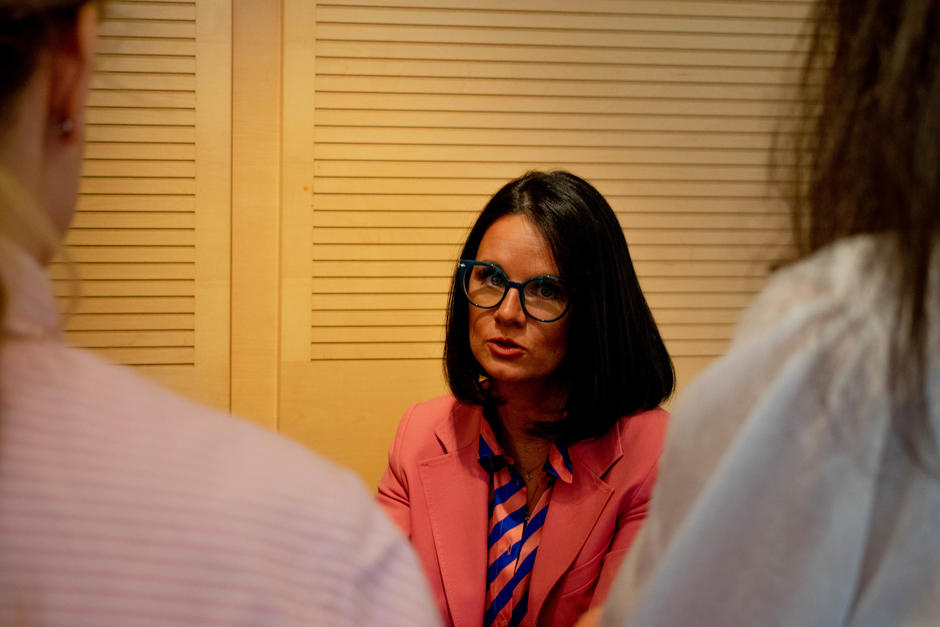On International Women's Day, Veolia Hungary again surprised its female employees with an interesting presentation. Dr. Anita Árvai, dreamer and creator of a vegan restaurant at Lake Balaton, shared her story of how and why she started on a sustainable path and found harmony with herself and the world.
Today, lot of discussions centre around overconsumption, sustainability, the necessity to reduce our ecological footprint, and the diseases of civilization, but only a few of us make conscious efforts to live every day in an environmentally friendly way. Why is that? Is it because we would have to change ourselves, give up some of our habits and leave our comfort zone?
It would be enough for us to become just a little more conscious when carrying out our activities. One or two small changes would do a lot to ensure that the resources regenerated by nature in a year are not be used up by the end of the first half of the year and thus we could avoid destroying the ecosystem and consuming the future generations’ reserves.

Anita, having worked as a lawyer for 10 years, soon realized that her way of life (compulsion to conform, city life, constant rush, loneliness, etc.) could not be sustainable in the long term. All she wanted was a happy life, but for that she had to confront herself and her habits. Plus, she developed cancer at the age of 24, which, despite numerous operations and treatments, recurred a few years later.
Since she no longer wanted to undergo further surgeries and aggressive treatments, she decided to change her diet. After a lot of research, she found the complete plant-based diet and became vegan. From then on, her medical results got better, and beyond the physical improvement, she developed a kind of awareness and decided that she wanted to help people to find a similar path. She gave up her career as a lawyer and opened a vegan restaurant.
Since then, she has been living happily and in balance, and she motivates people to shift towards a conscious living if they want to feel the positive effects. For her, survival was the motivation, but for others, it is enough if they just want to be more satisfied or live a more sustainable life.
However, to achieve this, changes must be made. Fortunately, it is never too late! After all, we already know in our head what to do, but we still have many questions or doubts. Of course, not everyone has to become vegan for this reason. By saving food, consuming less meat and processed meat products (because livestock farming has more severe impacts on the environment than crop cultivation), or by only buying local and seasonal products, less packaged goods, and by preparing our own food from fresh ingredients, we would already contribute a lot to reducing our ecological footprint. In addition, our health will also benefit from these changes.
Will all this be enough to reverse the ecological damage that humanity has already caused? Unlikely, but we may slow down the process. Those who have kids or a conscience are certainly already motivated to satisfy their needs in a way that leaves enough resources for the future generations as well.

